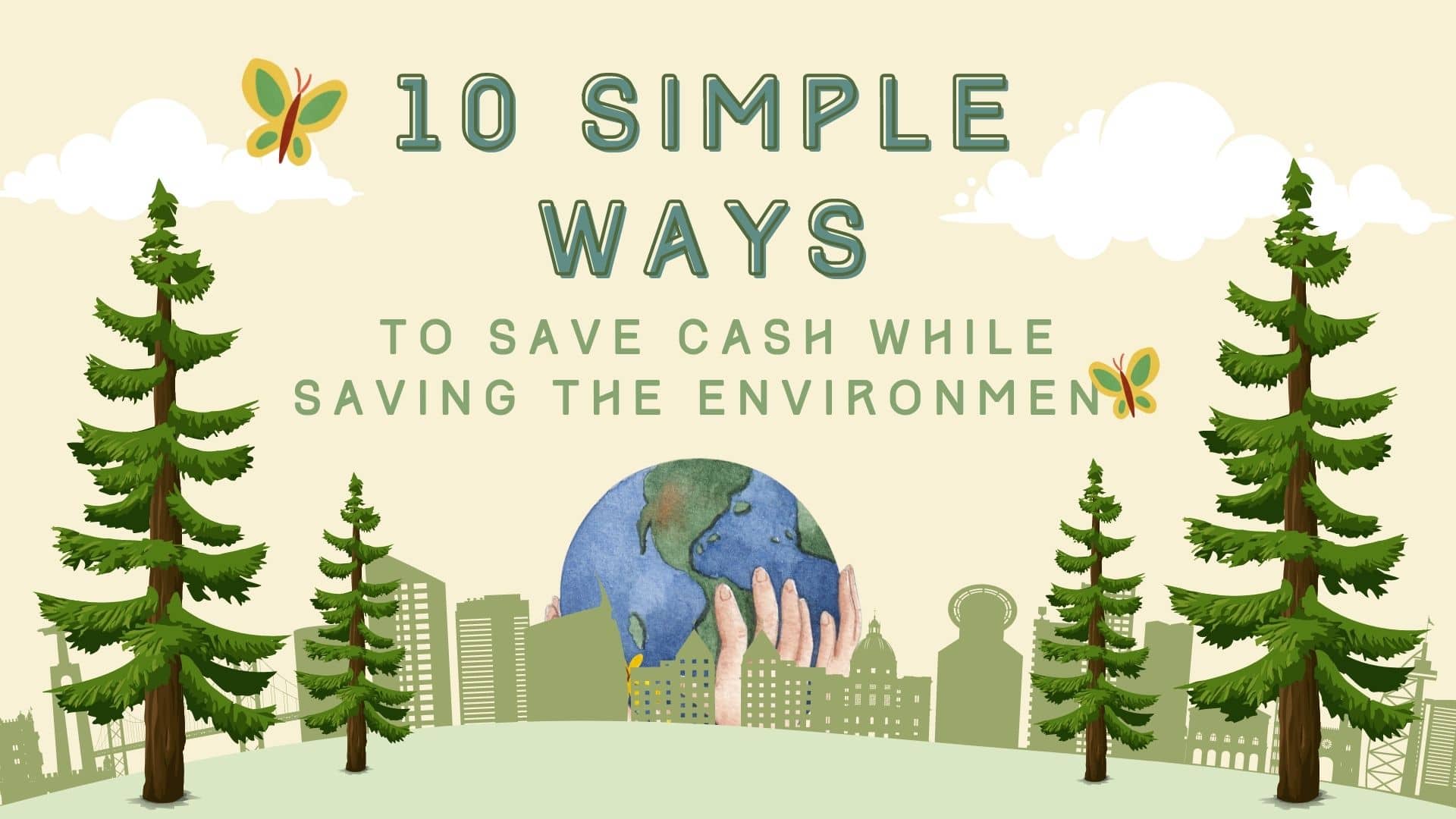
10 Simple Ways to Save Cash While Saving The Environment
April 2025 by couponlab
Unless you have something seriously wrong with you, you probably aren’t explicitly opposed to helping the planet. While you might not invest much into environmentalism (or anything at all), you will most likely agree that little things should be done to minimize waste and production or keep from utterly destroying our world.
Even if you aren’t up for going out of your way to make a difference, you will be surprised by what small things you can do to help out. They might seem like nothing, but in the end, they will add up over the years – especially the more people doing it. Reducing the garbage, you throw ut with something reusable has a significant impact over time.
Want further incentives? You can save more than the planet…you can save cash, too! You will find that living a little more responsibly will positively affect your wallet, which is one consequence I think we can all get behind.
Here are ten easy ways to go greener while keeping a bit more green in your pocket.
- Buy big. One of the biggest problems with grocery stores is that they sell many individually packaged items. Even diet experts tell their clients and viewers to do portion control by buying packaged goods. But all that extra paper and plastic is more harmful to the planet and costs a lot more by volume. Instead, buy bulk and divvy it into reusable plastic containers.
- Cook big. When cooking for a smaller family or yourself, buying larger packages at one time can be challenging. But if you make more at once, you can pack and freeze the rest. Tupperware is great for this, saving both money and time. Just think how much you will cut down on fast food when you don’t like cooking. You can pull the meal out of the freezer, reheat and serve it.
- Use glass. Whenever I get spaghetti sauce or jam, I save the mason jars. Then I use half of them for water containers (a great way to get in your eight glasses) and a half for storage. Rather than using plastic containers, I save glass ones of all sizes for sauces, jellies, and even some cooked vegetables. I have a jar of leftover peas in the fridge as I type this.
- Make your cleaners. This isn’t as hard as it sounds. I use one tablespoon of vinegar in a spray bottle of water with five drops of tea tree essential oil. It costs cents on the dollar and cleans better than anything I have ever used. It is also safer for both you and the planet. I reuse bottles, and since the ingredients are natural, I don’t have to worry about poisonous or toxic mixtures. I also use baking soda, lemon, and club soda.
- Buy better, not cheaper. Yeah, it might be tempting to buy that all-in-one entertainment center from that superstore down the street for $1,000 less than other brands. But you can bet that the quality for something cheaper won’t be up to scratch. Whether clothes, furniture, or personal items, saving up for higher quality items will save you a lot when you don’t have to replace them constantly.
- Dress appropriately. If you are cold in the winter, put on a sweater. If you are hot in the summer, open the windows and pop on some shorts. The thermostat should be set at 68 degrees and kept there. This will save you a lot of money and the planet a lot of resources.
- Go used. I cannot tell you what amazing things I found at thrift stores and Craigslist. I bought a new bike, barely used, for $50 just a few weeks ago. Buying used from swap meets, second-hand shops, eBay, or garage sales is cheap and helps lessen what is thrown away.
- Utilize public transport or green alternatives. Even if you choose only one day a week to ride the bus, ride a bike, walk to school or work, or carpool, you will save a ton on gas and emissions. Not to mention what you will save on your monthly petrol budget.
- Get what you need, not what you want. If there is any item that you know you will never use, or maybe use once or twice before ditching it, don’t get it. Be honest with what you need because buying wasteful products clutters the home and the landfills and wastes a ton of cash.
- Get an eReader. This is a big one for me. I am a bookworm, and I have bookshelves full of everything from biographies to technical manuals to trashy dollar fiction paperbacks. I love to read. But the toll it takes on forests is intense, and I am running out of room. So I bought myself an e-reader and took advantage of the fact that my library offers compatible ebook formats for many titles. Not to mention the many public domain books available from Amazon, various book software programs, and other sites. Anything else I can buy without harming a single tree.
Table of Contents